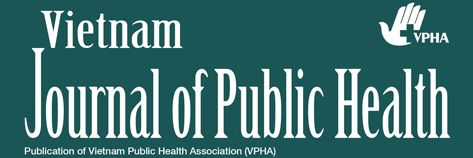Y tế Công cộng trong kỉ nguyên mới: Nâng cao sức khỏe thông qua các hành động tập thể (Public Health in the new era: Improving health through collective action)
Tóm tắt
Thế giới đang tiến vào kỷ nguyên mới mà ở đó tồn tại đồng thời một cách trái ngược những chỉ số sức khỏe ngày càng được cải thiện và những chỉ số sức khỏe khác lại có đảo lộn cơ bản. Những sự thay đổi nhanh chóng về tình hình sức khỏe trên toàn cầu vốn đã phức tạp nay lại đang diễn ra trong bối cảnh mà lực lượng cán bộ y tế công cộng chưa sẵn sàng để đương đầu với những thử thách đó. Sự chưa sẵn sàng này phần nào là do các thử thách đó lớn và phức tạp, do lực lượng cán bộ và hạ tầng cơ sở của ngành y tế công cộng đã bị lãng quên, và do còn thiếu các chương trình đào tạo. Vấn đề càng trầm trọng hơn bởi việc tập trung kinh phí cho các nghiên cứu y sinh học và sự không thành công khi giải quyết và làm việc với các vấn đề cần quan tâm có liên quan đến sức khỏe, và điều này duy trì và thúc đẩy phát triển những mô hình hành vi có hại cho sức khỏe.
Nếu những cán bộ y tế công cộng có ý định giải quyết những thách thức đối với vấn đề sức khỏe cấp quốc gia và toàn cầu một cách hiệu quả thì cách thức mà họ tiến hành cần có sự thay đổi quan điểm lớn. Cần phải có cái nhìn rõ ràng với vấn đề y tế công cộng là gì và nó có thể đem lại những gì. Để làm được điều này, tầm nhìn về y tế công cộng không chỉ được truyền bá đến những người làm công tác y tế công cộng mà cần phổ biến cho cộng đồng những người hoạch định chính sách, đó là những người mà hành động của họ là yếu tố thiết yếu để cải thiện sức khỏe cho công chúng. Chúng tôi đề nghị cần xây dựng lại định nghĩa về y tế công cộng với mong muốn nó sẽ phù hợp hơn trước những thách thức về sức khỏe ở cấp quốc gia và trên toàn cầu trong kỷ nguyên mới này.
English abstract
The world is entering a new era in which, paradoxically, improvements in some health indicators and major reversals in other indicators are occurring simultaneously. Rapid changes in an already complex global health situation [1] and [2] are taking place in a context in which the global public health workforce is unprepared to confront these challenges. This lack of preparation is partly because the challenges are large and complex,[3] the public-health workforce and infrastructure have been neglected, and training programmes are inadequate. These problems are exacerbated by the concentration of funding on biomedical research and the failure to confront and work with vested interests, which promote and sustain unhealthy behaviour patterns.
If public-health practitioners are to address national and global health challenges effectively, the way they work and make their work relevant to these challenges 4 will require a major reorientation. A clear vision of what public health is, and what it can offer, is required. To be achievable, the vision must then be communicated not only to its practitioners, but also to the wider policy community, whose actions are necessary to improve the health of the public. Here, we propose a reformulation of public health appropriate for the global and national health challenges in this new era.
Từ khóa
Toàn văn:
PDF (English)##submission.citations##
In: R Beaglehole, Editor, Global public health: a new era, Oxford University Press, Oxford (2003).
In: M McKee, P Garner and R Stott, Editors, International co-operation and health, Oxford University Press, Oxford (2001).
WHO, World Health Report, 2002: reducing risks, promoting healthy life, World Health Organization, Geneva (2002).
The Lancet, The EU's answer to future public health challenges, Lancet 359 (2002), p. 2211. SummaryPlus | Full Text + Links | PDF (28 K)
FD Scutchfield and JM Last, Public health in North America. In: R Beaglehole, Editor, Global public health: a new era, Oxford University Press, Oxford (2003).
NA Vinogradov and ID Strashun, Health protection of the workers of the Soviet Union, Medgiz, Moscow (1947).
L Lee, V Lin, R Wang and H Zhao, Public health in China: history and contemporary challenges. In: R Beaglehole, Editor, Global public health: a new era, Oxford University Press, Oxford (2003).
The Lancet, Putting public health back into epidemiology, Lancet 350 (1997), p. 229. SummaryPlus | Full Text + Links | PDF (24 K)
D Porter, Changing disciplines: John Ryle and the making of social medicine in twentieth century Britain, Hist Science 30 (1992), pp. 119147.
H Waitzkin, C Iriart, A Estrada and S Lamadrid, Social medicine in Latin America: Productivity and dangers facing the major national groups, Lancet 358 (2001), pp. 315323. SummaryPlus | Full Text + Links | PDF (916 K) | View
Record in Scopus | Cited By in Scopus (16)
C Hamlin, The history and development of public health in developed countries. In: R Detels, J McEwen, R Beaglehole and H Tanaka, Editors, Oxford textbook of public health (4th edn.), Oxford University Press, Oxford (2002).
D Wikler and R Cash, Ethical issues in global public health. In: R Beaglehole, Editor, Global public health: a new era, Oxford University Press, Oxford (2003).
NE Kass, An ethics framework for public health, Am J Public Health 91 (2001), pp. 17761782. View Record in Scopus | Cited By in Scopus (58)
MJ Roberts and MR Reich, Ethical analysis in public health, Lancet 359 (2002), pp. 10551059. SummaryPlus | Full Text + Links | PDF (76 K) | View Record in Scopus | Cited By in Scopus (38)
Sahn De and DC Stifel, Progress toward the millenium development goals in Africa, World Development 31 (2003), pp. 2325.
A Sen, Development as freedom, Oxford University Press, Oxford (2001).
AJ McMichael, Prisoners of the proximate, Am J Epidemiol 149 (1999), pp. 887897. View Record in Scopus | Cited By in Scopus (91)
R Beaglehole and R Bonita, Public Health at the Crossroads: Achievements and prospects (Second edition), Cambridge University Press, Cambridge (2004).
Bill and Melinda Gates Foundation, $ 200 million grant to accelerate research on grand challenges in global health Press release. (http://www.gatesfoundation.org/globalhealth/ announcements) (accessed Feb 4, 2003).
WHO, World Health Report, 2000. Health systems: improving performance, World Health Organization, Geneva (2000).
Milburn A, Tackling health inequalities, improving public health. Speech to the Faculty of Public Health Medicine. London: Nov 20, 2002.
DA Lawlor, S Frankel and M Shaw et al., Smoking and health: does lay epidemiology explain the failure of smoking cessation among deprived populations, Am J Public Health 93 (2003), pp. 266270. View Record in Scopus | Cited By in Scopus (33)
N Milio, Public Health in the market: Facing managed care, lean government, and health disparities, University of Michigan Press, Ann Arbor, MI (2000).
JB McKinlay and LD Marceau, A tale of two tails, Am J Public Health 89 (1999), p. 295. View Record in Scopus | Cited By in Scopus (42)
LO Gostin, Public health law reform, Am J Public Health 91 (2001), pp. 13651368. View Record in Scopus | Cited By in Scopus (8)
R Beaglehole, Global cardiovascular disease prevention: time to get serious, Lancet 358 (2001), pp. 661663. SummaryPlus | Full Text + Links | PDF (60 K) | View Record in Scopus | Cited By in Scopus (34)
J Powles, Public health in developed countries. In: R Detels, J McEwen, R Beaglehole and H Tanaka, Editors, Oxford textbook of public health (4th Edn.), Oxford University Press, Oxford (2002).
C Hamlin, Commentary: John Sutherland's epidemiology of constitutions. Int, J Epidemiol 31 (2002), pp. 915919. Full Text via CrossRef | View Record in Scopus | Cited By in Scopus (2)
J Raeburn and S Macfarlane, Putting the public into public health: towards a more people-centred approach. In: R Beaglehole, Editor, Global public health: a new era, Oxford University Press, Oxford (2003).
People's Health Movement (http://www.pha2000.org) (accessed Jan 28, 2004).



